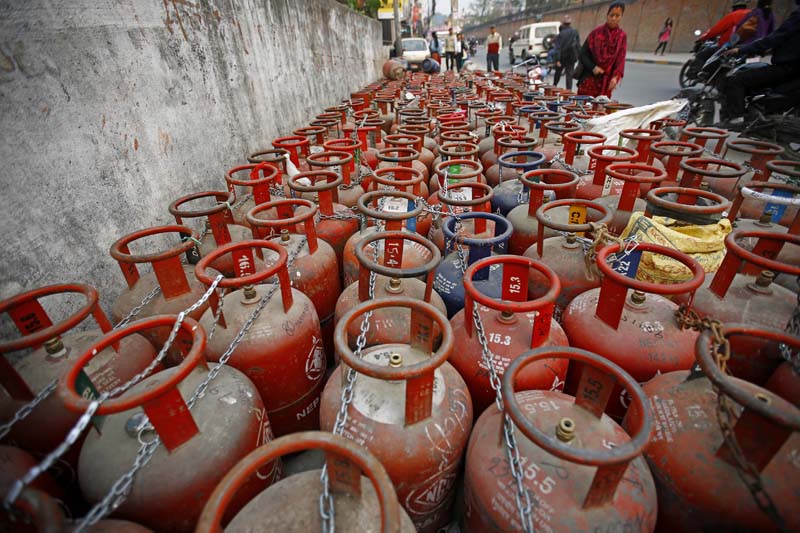Government to finally implement auto-pricing for cooking gas from January 1
Kathmandu, December 27
The government will implement auto-pricing mechanism to fix market price of liquefied petroleum gas from January 1.
According to Deepak Baral, LPG director of Nepal Oil Corporation, the auto-pricing mechanism will be implemented for cooking gas from the beginning of New Year. NOC has been applying the system for petrol, diesel and kerosene pricing.
NOC decided to implement auto-pricing mechanism for LPG after coming under pressure from the government and the Committee on Commerce Industry and Consumer Welfare Relation of the Legislature-Parliament.
Under this system, NOC fixes fuel price based on the rates that NOC’s sole supplier — Indian Oil Corporation — sends on every first and sixteenth day of English calendar. IOC, however, adjusts LPG price only once a month.
“LPG price will be adjusted with every change in IOC’s tariff once the mechanism comes into effect,” Baral said, adding that NOC will adjust the new price for LPG in first week of January if there is significant change in tariff sent by IOC.
NOC adopted automatic pricing mechanism for petrol, diesel and kerosene on September 29, 2014.
Until a few months ago, NOC had been providing subsidy on LPG to customers. In 2013, subsidy per cylinder had surged to over Rs 1,000. Owing to the mismatch between cost price and market price of petroleum products, NOC was reeling under debt burden of more than Rs 30 billion in 2014-15. However, NOC settled all its debts to the government and financial institutions over the last one-and-half-years following significant plunge in oil prices in the international market. Due to supply glut, oil price had dropped to as low as $27 per barrel in January.
Currently, NOC incurs a loss of Rs 6.05 on an LPG cylinder. However, NOC earns a profit of Rs 5.72 per litre of petrol and Rs 1.28 on a litre of kerosene. NOC, however, bears a loss of 0.04 paisa per litre of diesel. Once a debt-ridden enterprise, NOC has been making monthly profit of up to Rs 280 million.
However, NOC has been criticised time and again for not implementing automatic pricing mechanism for all petroleum products and not reducing prices of petrol and diesel in line with their decline in the international market.
Though the mechanism requires NOC to adjust petroleum prices twice a month, NOC has not been doing so for months. Moreover, a parliamentary committee recently ordered NOC to rollback the recent hike in petroleum products, stating that the decision to raise fuel prices is against the government’s own mechanism. NOC has said it will adjust new fuel prices in the first week of January.






